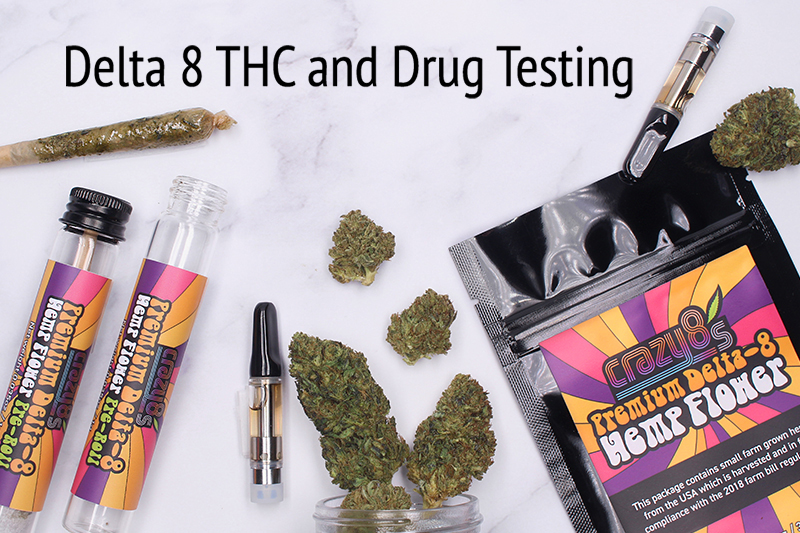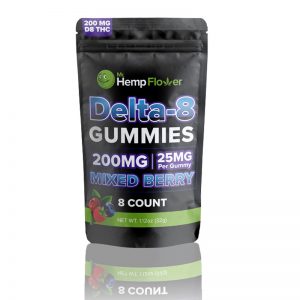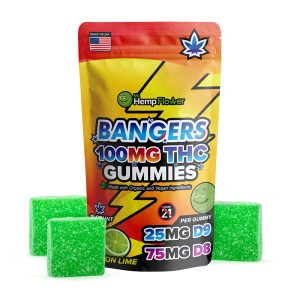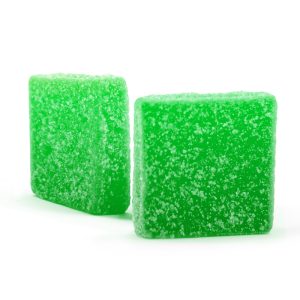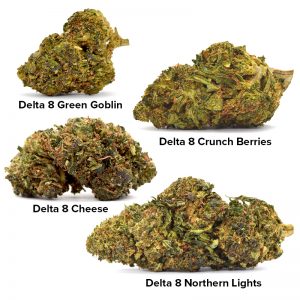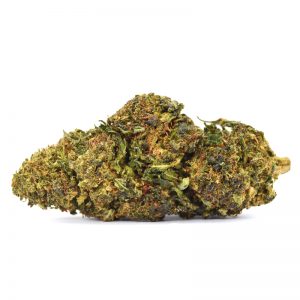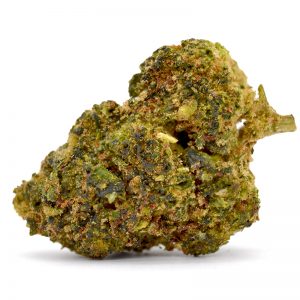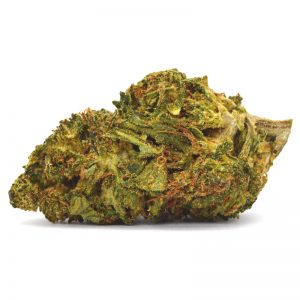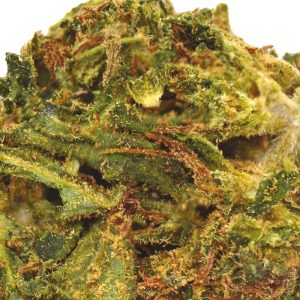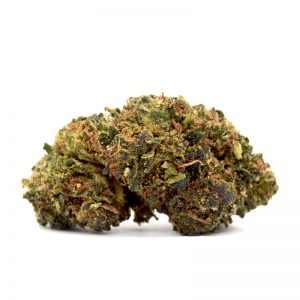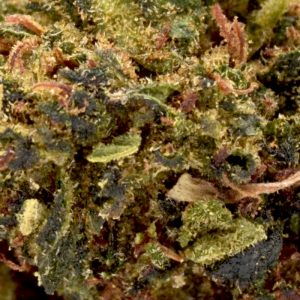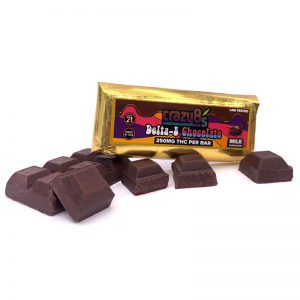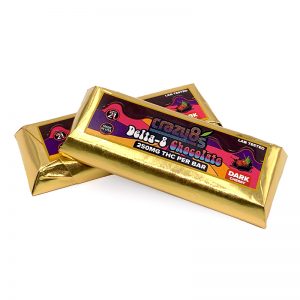The hemp industry’s top cannabinoid, delta 8 THC, is consumed by thousands of adults for symptoms like sleep disturbances, physical discomfort, and racing thoughts.
Every regular user wants to know how freely they can consume it. Will seldom or frequent consumption of delta 8 THC cause a failed drug test?
THC’s euphoric effects fade quickly — usually after a few hours following inhalation or ingestion. However, THC’s metabolites stay in the system for weeks after last use.
Does that mean delta 8 THC will show up on a drug test? This article explores all aspects of delta 8 and drug testing, so let’s dive in.
Last Update: May 24, 2025
Article Summary
- You will most likely fail a drug test after using delta 8 THC.
- Frequent delta 8 users are at a higher risk of failing a drug test.
- Factors like the type of test, metabolism, and gender can influence the detection of delta 8 THC in drug screenings.
- Delta 8 can trigger a positive result because standard urine drug tests detect THC metabolites, not the cannabinoids themselves. This phenomenon is known as cross-reactivity.
- Cross-reactivity in drug tests means that the test’s antibodies detect metabolites similar to a drug tested, resulting in a ‘false positive’.
- After a “false positive” result, a more specific test like GC/MS may be required to differentiate between delta 8 and delta 9 THC metabolites.
- Delta 8 THC is a naturally occurring cannabinoid in the hemp plant, produced as a byproduct of the degradation of delta 9 THC.
- Users take this cannabinoid for symptoms like physical discomfort, sleep issues, and racing thoughts.
Will I Fail a Drug Test if I Use Delta 8 THC?
Yes, you will most likely fail a drug test after using delta 8 THC.
The likelihood of failing a drug test after using this cannabinoid increases with more frequent use and higher doses. Other factors that influence delta 8 detection on a drug test are the type of test used (urine, blood, hair), metabolism, gender, etc.
Further reading: Delta 8 for Sleep
A standard urine drug test detects THC’s byproducts, also known as THC metabolites, rather than the cannabinoids themselves. So, when delta 8 THC breaks down in the body, its metabolites get detected by the drug test — even if the test isn’t programmed to look for delta 8’s metabolites specifically.
In the next section, we explain how a drug test that’s made to look for delta 9 THC can detect delta 8 THC’s metabolites in urine.
Full Spectrum Delta 8 THC Gummies
Imagine unwrapping a pack of our premium delta 8 gummies, each bite bursting with the sweet flavor of mixed berries. Infused with the finest hemp-derived delta 8 THC distillate, these 25 mg full spectrum treats promise a potent journey towards rest and relaxation. Eight gummies and 200 mg of delta 8 per pack, each chewable is meticulously crafted to ensure the perfect balance between efficacy and flavor.
Cross-Reactivity: Drug Tests Detect Most THC Metabolites
THC’s metabolites are stored in our fat cells, so a drug test can detect them for a longer period of time, like months after use. This is especially the case with urine and hair tests.
Let’s say you are a regular delta 8 user. You purchase delta 8 products derived from hemp from a legal local store that sells federally compliant products. At work, you are requested to undergo a standard urine test, the most common type of workplace screening.
Will you test positive?
The answer is, most likely.
The most common type of urine drug screening is the enzyme immunoassay (IA), also known as a dipstick test. An IA test “uses antibodies to detect the presence of selected drugs and/or their metabolites based on a predetermined cutoff threshold.”
THC urine tests are optimized to detect delta-9 THC’s primary inactive metabolite 11-nor-delta-9-THC-COOH (also known as THC-COOH or carboxy-THC).
However, here’s the thing. Urine tests have the ability to detect other cannabinoid metabolites present in the urine. This phenomenon is known as “cross-reactivity.”
Cross-reactivity, in a general sense, indicates the sensitivity of the test to compounds with a similar structure to the one the test is designed to detect.
In this case, manufacturers design most urine tests to detect THC-COOH, delta-9’s primary inactive metabolite in urine.
However, because cannabinoids and their metabolites have an extremely similar structure (they are isomers), the enzymes that detect delta-9 THC’s metabolites in urine also recognize other cannabinoid metabolites. So, the test detects other forms of THC, like delta 8 THC’s metabolites.
This phenomenon can result in what is known as a ‘false positive’ in cannabis drug testing.
Further reading: Delta 8 for Pain. Will It Help?
What is a “False Positive” Drug Test Result?
So, you will likely fail a standard urine drug test after consuming delta 8 because the test gives a “false positive” result.
A ‘false positive’ occurs when the dipstick test’s antibodies react to delta 8 THC’s metabolites, mistaking them for those of the tested drug, delta 9 THC, due to their structural similarity. The tested drug in this case is delta 9 THC.
Let’s explain this further.
A 2020 report published in The Journal for Applied Laboratory Medicine focused on investigating cross-reactivity in THC immunoassays (IA), commonly known as dipstick test.
The authors of the report screened THC and four other cannabinoids, such as cannabidiol (CBD), cannabinol (CBN), cannabichromene (CBC), and cannabigerol (CBG).
Out of all cannabinoids tested, the researchers noticed a significant cross-reactivity with CBN. So, a regular dipstick test tends to detect the presence of CBN, a product of THC’s degradation, similarly to delta 8 THC.
The study showed that when CBN and THC were together in a urine sample, the test showed a higher concentration of THC than it would have when testing THC by itself [1].
Based on this study, we can conclude that due to extreme structural similarities, the delta 8 THC molecule is very likely to cross-react with urine tests designed to detect delta 9’s metabolite.
Emit II Plus Cannabinoid Assay is one of the most common urine immunoassays that detect THC’s metabolites. This report on Emit II Plus lists cannabinoids that, in a certain concentration, produce an approximately equivalent result to the THC-COOH cutoffs. One of the metabolites listed is delta 8 THC’s metabolite 11-hydroxy-delta-8-THC [1].
This means that frequent users who consume delta 8 THC in higher doses are very likely to test positive on a drug test.
What’s a Cutoff Level in Drug Testing?
The cutoff level of a urine drug test is measured in nanograms per milliliter (ng/mL) and represents the concentration of metabolites necessary for positive detection of THC.
So, if you test negative, that doesn’t mean that you haven’t consumed THC. But it rather indicates that even if you did, the concentration of the drug is lower than the set cutoff.
It’s worth noting that some standard urine tests detect delta 8’s presence in urine.
For example, this 6-panel urine test detects marijuana metabolites, with the main one being 11-nor-delta-9-THC-COOH at a cutoff level of 50 ng/mL.
But, it also detects delta-8’s metabolite 11-nor-delta-8-THC-COOH at a lower cutoff level of 30 ng/mL.
In this example, the cut off levels for delta 8 (30ng/mL) are even lower than for delta 9 (50ng/mL). Meaning, the test can detect lower levels of delta 8 metabolites compared to delta 9.
Further reading: Delta 8 vs. Delta 9: What’s the Difference Between These Two Cannabinoids?
The Next Step After a False Positive Result
Typically, the next step is the gas chromatograph mass spectrometer (GC/MS) test.
The cross-reactivity of urine tests means that these tests detect “total cannabinoids” rather than THC-COOH only. That’s why the test is called screening, as every “false positive” THC test requires a more accurate confirmation test.
A GC/MS test detects only a specific compound, which means it will look for delta 9’s metabolite THC-COOH. If the GC/MS test doesn’t look for delta 8’s metabolites specifically, it won’t detect them, and the initial “false positive” test will be negative for THC.
This is why it’s important to consider the purity of your delta 8 THC products. If there is a small concentration or trace amounts of delta 9 THC in the product, the likelihood of testing positive for THC increases.
With that said, you shouldn’t rely solely on the possibility of having a “false positive” test, followed by a GC/MS test if your job is strict about drug use.
In addition, delta 8’s use is so widespread that your workplace may consider adding it to the screening for marijuana metabolites.
If you’re interested in exploring the benefits of this cannabinoid, quality and safety are paramount.
Check out these top vape brands such as Avida CBD here.
Where to Buy the Best Delta 8 THC?
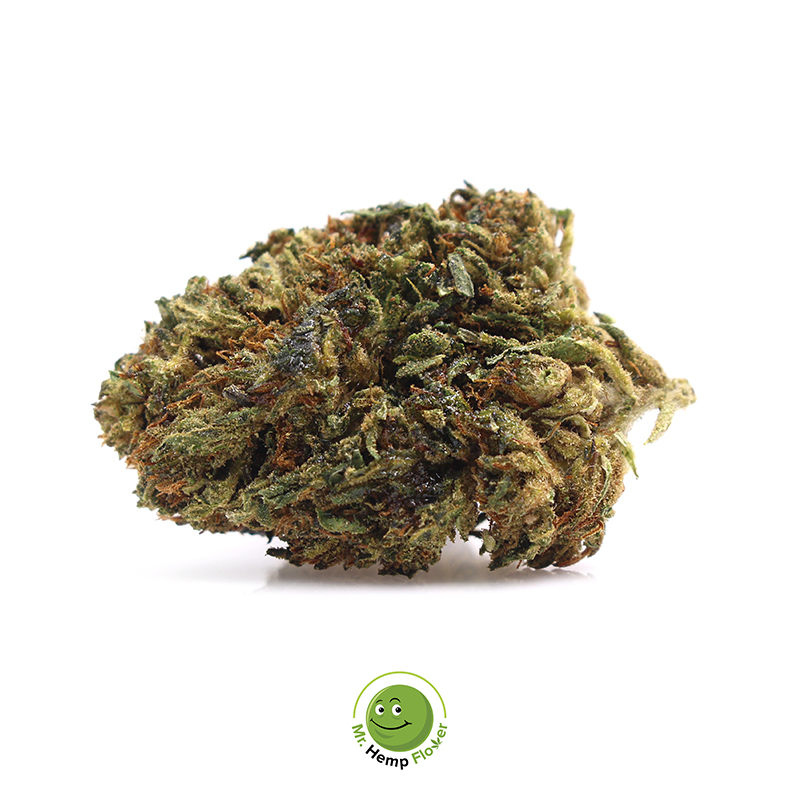
Mr. Hemp Flower is the nation’s leading supplier of high-quality hemp-derived delta 8 THC products. Our premium delta 8 THC flower comes from organically grown hemp plants sourced from licensed U.S. growers.
Our highly effective line of delta 8 THC hemp products features a natural taste.
If you want to try a hemp flower with a kick, our Northern Lights Delta 8 Hemp Flower and Cheese Delta 8 Flower are perfect. These two strains are sticky and stinky, coated in delta 8 distillate, and naturally loaded with cannabinoids and terpenes.
If you dislike rolling your own hemp flower, our Delta-8 Flower Pre-Rolls – Stormy Daniels are a must-try. They are a blend of cannabinoid-rich hemp flower, kief and delta 8 oil, so prepare for a ride.
For delicious edibles, go for our delta 8 chocolate bars infused with 250 mg of delta 8 per bar. They come in two flavors, milk chocolate and dark cherry. Don’t your taste buds start watering at the sound of those two flavors? Because ours do!
You will notice that all of our delta 8 THC products come with a Certificate of Analysis. This document is issued by a third-party, reputable lab and shows the exact levels of cannabinoids and terpenes in the product.
We also offer a line of high-grade, lab-tested full spectrum CBD oils, CBD gummies, and different types of CBD products — like balms and softgel capsules. All our hemp-derived products are made by our hardworking team, so when buying from us, you’re buying directly from the maker.
Before buying, you probably want to know the legal status of this compound both federally and on a state-by-state level.
Further reading: Is delta 8 THC legal in your state? Check out our updated list of d8’s legality in the United States here.
What is Delta 8 THC?
The hemp plant contains over 100 different chemical compounds known as cannabinoids. Delta 8 THC is a minor cannabinoid naturally present in cannabis plants in trace amounts (less than 1%).
Similarly to cannabinol (CBN), delta 8 is a byproduct of THC, produced when the hemp plant is exposed to oxygen during storage.
Delta 8 THC is different from traditional delta 9 THC — the main form of THC in cannabis. Pure delta 8 is an analog of delta 9 or a molecule with a similar structure that displays minor but significant differences. Think of delta 8 THC as a delta 9 THC’s sister molecule that features different effects in the body.
How Does Delta 8 Make You Feel?
While delta 9 exhibits potent psychotropic effects and gives a more intense “high,” delta 8 doesn’t go as strong.
Like all types of THC, delta-8 will get you high, especially if you have low tolerance for cannabis. But, you will experience a mild and pleasant high that keeps you clear-headed — without the anxiety or paranoid feeling commonly expressed by delta 9.
The intoxicating effect caused by both delta 8 and delta 9 THC comes from their ability to bind to the CB1 receptors in the brain. These receptors are part of the body’s endocannabinoid system and produce that mind-altering, “stoned” effect.
Further reading: Does Delta 8 Get Your High?
How Long Does Delta 8 THC Stay in Your System?
THC’s byproducts remain in the urine roughly four to eight days after one-time use.
THC’s metabolites linger in the body for much longer than the duration of effects.
Cannabis use between two and four times a week can be detected in urine 1-3 weeks after the last consumption. Although we don’t know exactly how long delta 8 THC’s byproducts linger in the urine, daily cannabis users may test positive for 30 to 60 days or longer.
The body metabolizes THC rapidly. THC is detected in the blood in a timeframe that stretches between two hours and one to two days after single use.
Types of Drug Tests
You’re an avid delta 8 user and need to take a THC drug test at your workplace. You’ve also stopped consuming delta 8 and delta 9 THC products a month before the drug screening. Will you still get positive results on your delta 8 drug test?
The short answer is: It depends on the frequency of consumption and type of test being used. Each test detects THC metabolites in your body within a different detection window.
Standard urine tests can detect marijuana metabolites in urine samples for approximately 3 to 30 days after use.
Saliva tests can detect marijuana metabolites for approximately 24 hours after use.
Hair follicle drug tests (or hair tests) are the most sensitive and can detect THC for up to 90 days after use. The main downfall of this test is that it tests the oil in the skin that transfers to hair — which may lead to false-positive test results. Therefore, if you’re in a room with a person who smokes or vapes THC, you could theoretically test positive on a hair test.
The amount of time that’s passed since you’ve last used a cannabis product or consumed delta 8 also influences the result. Therefore, the frequency of use plays a significant role — because THC’s effects are cumulative.
Further reading: Delta 8 for Nausea
The Cumulative Effects of Delta 8 THC
THC accumulates in fat cells with regular use. The fat cells act as a reservoir for THC, slowly releasing its metabolites back into the bloodstream. As a result, this extends the detection window of THC in the body.
Consuming delta 8 THC several times over several days means that the person has used a higher dose than a person who smokes or vapes once. So, someone who uses D8 THC more frequently is more likely to test positive after a week compared to someone who had a higher dose of THC once.
If you use THC moderately, or up to 4 times per week, you’re likely to test positive 7-14 days after last use.
The body stores THC’s metabolites in the fat cells, so people with higher body fat concentrations may metabolize them more slowly than those with less body fat. In general, females have more body fat than males, which may metabolize cannabis slightly more slowly.
In general, heavy users test positive even after 30 days from the last time they’ve used.
Quick Recap:
- After one use, THC can remain in urine between 4 and 8 days.
- After one use, THC can be detected in blood between two hours and two days.
- Daily users may test positive for THC between 30 and 60 days (or longer).
- Using THC between 2 and 4 times a week can pop a positive test up to 3 weeks after last consumption.
Are Home Drug Tests Accurate?
The accuracy of home drug tests depend on their quality and sensitivity. High-quality tests are generally more reliable, while more sensitive tests can detect smaller concentrations of the drug.
The accuracy of the test can also depend on the specific drug being tested for. If you want to detect THC, it’s best to use a drug test that’s more sensitive and effective in detecting this cannabinoid.
At-home testing (IA test) is generally considered less accurate than laboratory tests, as it is more likely to yield a false-positive result.
This drug test looks for any presence of a category of drugs in the specimen. On the contrary, a lab-based test can screen for any drug and is more rigorous and accurate.
Further reading: Delta 8 for Anxiety
Is Delta 8 THC Addictive?
Yes, regular users can form an addiction to delta 8 THC.
Like any chemical that affects brain and body functions, overuse of delta 8 THC can also cause drug addiction. The most distinctive sign of an addiction is compulsive use despite negative effects.
Compared to delta 9, delta 8 is mildly intoxicating and has fewer adverse effects, so many believe it’s also less addictive. However, there’s no indication that this cannabinoid is less addicting than delta 9 THC.
Can You Avoid Testing Positive for THC?
That’s a tricky question, but there might be some things that you can do to “clear” THC from your body.
The single most critical factor in avoiding THC metabolites from showing on cannabis drug tests is the time from the last use to the time of testing.
Aside from letting time do its thing, there are two main strategies to “avoid testing positive.” Those are proper hydration and speeding up the metabolism.
If you’re dehydrated — and you’re the border between positive and negative — dehydration may increase the chances of a positive result.
Although there’s no reliable way to speed up the metabolism, proper nutrition and exercise (but not too close to testing time) may help.
How Do I Get Rid of Delta 8 in My System?
Here are some strategies for THC clearance.
Hydration
Drinking plenty of fluids, especially water, is a fundamental step in any detox process. It could facilitate the elimination of this cannabinoid and ensure that your body remains well-hydrated.
High-Fiber Diet
High-fiber foods such as fruits, vegetables, and whole grains can aid in the efficient removal of delta 8 THC by enhancing digestion and elimination.
Regular Exercise
Sweating through regular physical activity (or a sauna) helps excrete toxins, including THC metabolites. More research is needed, but exercise could support the body’s natural detoxification processes.
Natural Detox Supplements
Be cautious with natural detox supplements; while some ingredients may support the body’s detox pathways, it’s crucial to choose products that are safe and backed by reputable sources.
However, urgent situations require urgent measures. So, ingredients like milk thistle, dandelion root, and burdock root don’t hurt to try in this situation as these may support the body’s detox pathways. Still, you should be diligent when selecting supplements and ensure they are safe and effective.
Adequate Rest
Adequate rest allows the body to recover and detoxify more efficiently, so make sure you get a good night’s sleep before testing.
Dandelion Tea
Thanks to its diuretic properties, dandelion tea can assist in flushing out toxins from the body. Based on this property of dandelion tea, it’s believed it can help eliminate delta 8 THC too.
Reducing Alcohol Intake
One of the main reasons to reduce (or completely avoid) alcohol intake when trying to flush out THC from your body is to prevent dehydration.
Have You Tried Our Delta 8 Yet?
Join thousands of loyal Mr. Hemp Flower customers in the enjoyment of premium delta 8 THC products.
We infuse each product with pure delta 8 distillate made using organic, clean processes. In this unregulated industry, the best thing you can do is purchase from a reliable vendor that offers premium products with a Certificate of Analysis. This document presents a clear view of the compounds present in the product, ensuring clarity, consistency, and transparency.
If you’re a beginner, you can start with our vegan-friendly 10 mg delta 8 gummies, available in green apple, passion fruit, and black cherry vanilla flavors. Seasoned users can savor our top quality, extra potent THC gummies with no issue.
FAQ
What is the difference between delta 8 and delta 9?
Delta-8 produces a mild “high” without the anxiety and paranoia caused by delta-9 THC.
Will delta-8 THC show up on a drug test?
Yes. You are most likely to test positive if consuming delta-8 THC frequently.
What are the benefits of Delta 8?
Studies show that delta-8 THC helps with pain-relief, loss of appetite, anxiety, lack of sleep, prevents nausea and vomiting, and is a neuroprotectant.
Is Delta 8 legal?
In the U.S., synthetically made delta-8 THC is illegal, while hemp-derived delta-8 is legal.
How long does Delta 8 stay in your system?
THC’s byproducts can be detected in urine within a timeline of a few days to a few weeks, depending on frequency of use, dosage, and metabolism.

